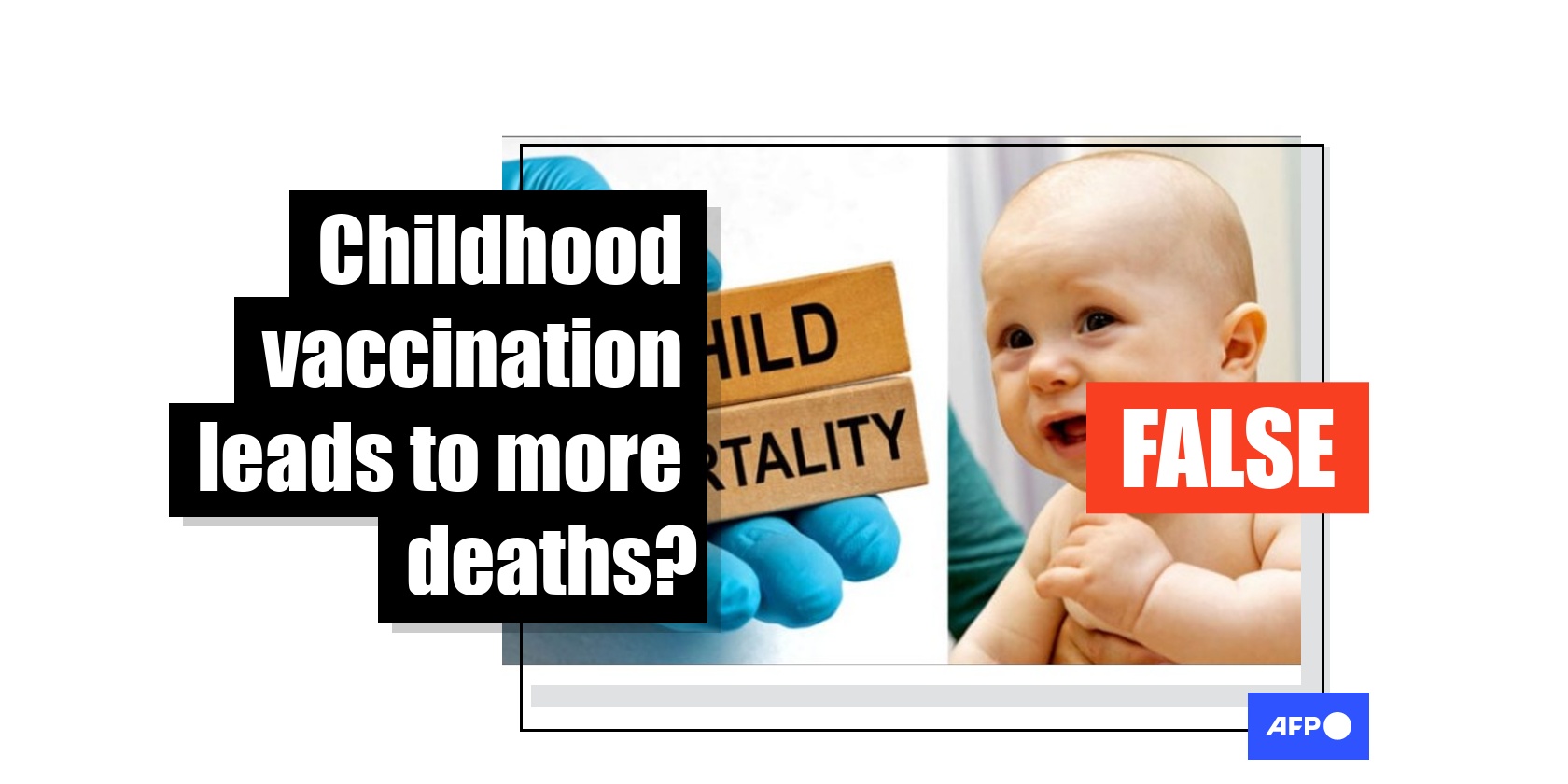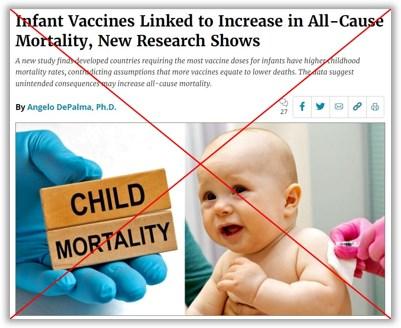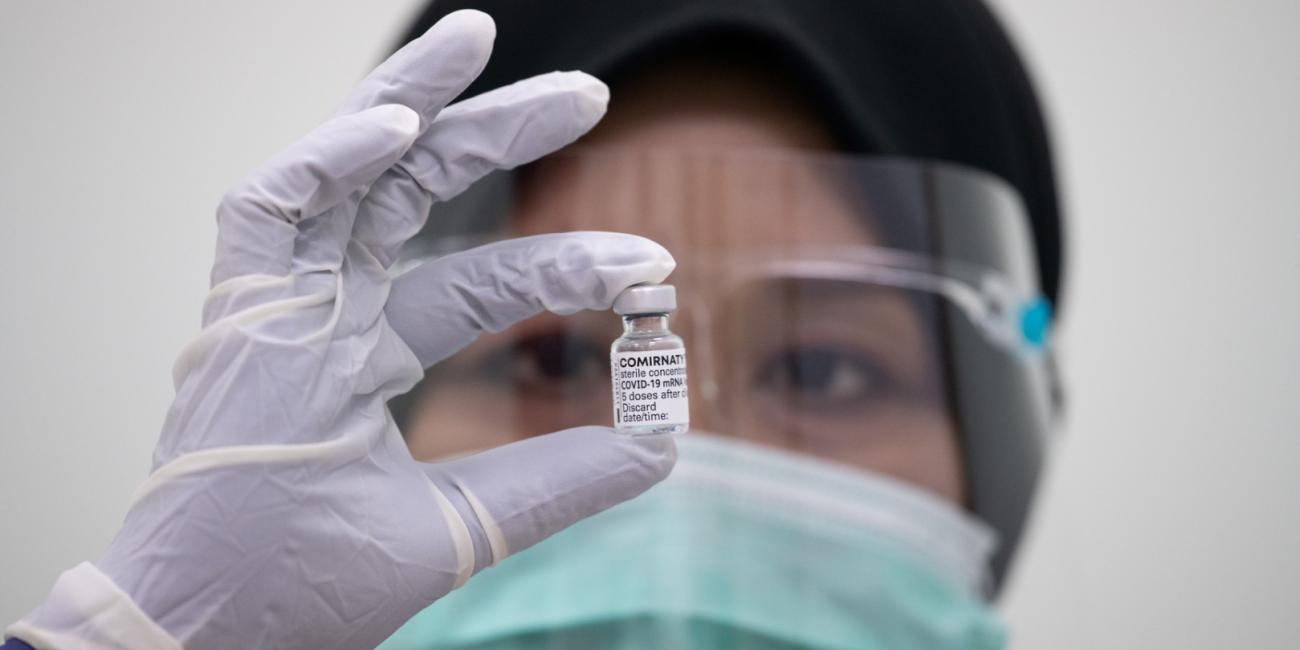
Article linking infant vaccines to high mortality rates cites flawed study
- This article is more than two years old.
- Published on August 9, 2023 at 16:17
- 2 min read
- By Natalie WADE, AFP USA
"A new study finds developed countries requiring the most vaccine doses for infants have higher childhood mortality rates, contradicting assumptions that more vaccines equate to lower deaths," says an August 1, 2023 article from Children's Health Defense, an organization that AFP has previously fact-checked for spreading vaccine misinformation.

The claim spread across Instagram and Twitter, which is being rebranded as "X."
But Rupali Limaye, deputy director of the International Vaccine Access Center, told AFP that research shows the opposite is true.
"Individuals -- and especially neonates, infants and children -- that get vaccines are actually much more likely to have better health outcomes, specifically related to those vaccine-preventable diseases," she told AFP on August 4.
The US Centers for Disease Control and Prevention and the American Academy of Pediatrics both recommend on-time vaccination throughout childhood to prevent potentially life-threatening diseases (archived here and here).
'Flawed methodology'
The Children's Health Defense article cites a study published July 20 in the Cureus Journal of Medical Science an open-access online medical journal that allows researchers to publish studies faster than the traditional peer-reviewed process. It is authored by Gary Goldman and Neil Miller, neither of which are medical professionals. The paper compares the number of vaccines administered to children in "developed nations" with infant mortality rates.
The paper cited "statistically significant positive correlations" between mortality rates and routine early childhood vaccine doses in developed countries.
But the source of the data in the study is unclear -- and it does not mention other factors that could explain the correlation, which Limaye said is likely "being masked by some other comorbidity."
Jennifer Kusma, a pediatrician at the Ann and Robert H Lurie Children’s Hospital of Chicago, agreed, saying the research has "a flawed methodology."
"Basically, there's no way to say who got vaccines and who didn't among those who had mortality," she said August 7. "There could be a correlation, but you can't really make any statement about causation."
David Gorski, an associate professor of surgery at Wayne State University, reviewed a similar report that Goldman and Miller published in February 2023.
Gorski said on his blog (archived here) that "differences in (infant mortality rates) depend on many things" and that the paper does not "show an effect that can be correlated with the number of vaccine doses on their recommended vaccine schedule."
He added that "it’s very dicey to compare IMRs (infant mortality rates) across nations because different countries define an infant mortality differently."
AFP reached out to Goldman and Miller for comment, but responses were not forthcoming.
Research indicates socioeconomic inequality is likely a primary contributor to the United States' higher infant mortality, along with data reporting differences, according to the Kaiser Family Foundation.
Diseases like measles and rubella can cause serious health problems and kill approximately 350 people a day, mostly children says the CDC website, which adds that childhood vaccinations prevent more than four million deaths worldwide.
AFP has fact-checked other false and misleading claims about vaccines here.
Copyright © AFP 2017-2026. Any commercial use of this content requires a subscription. Click here to find out more.
Is there content that you would like AFP to fact-check? Get in touch.
Contact us




